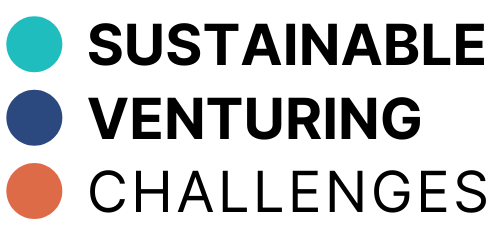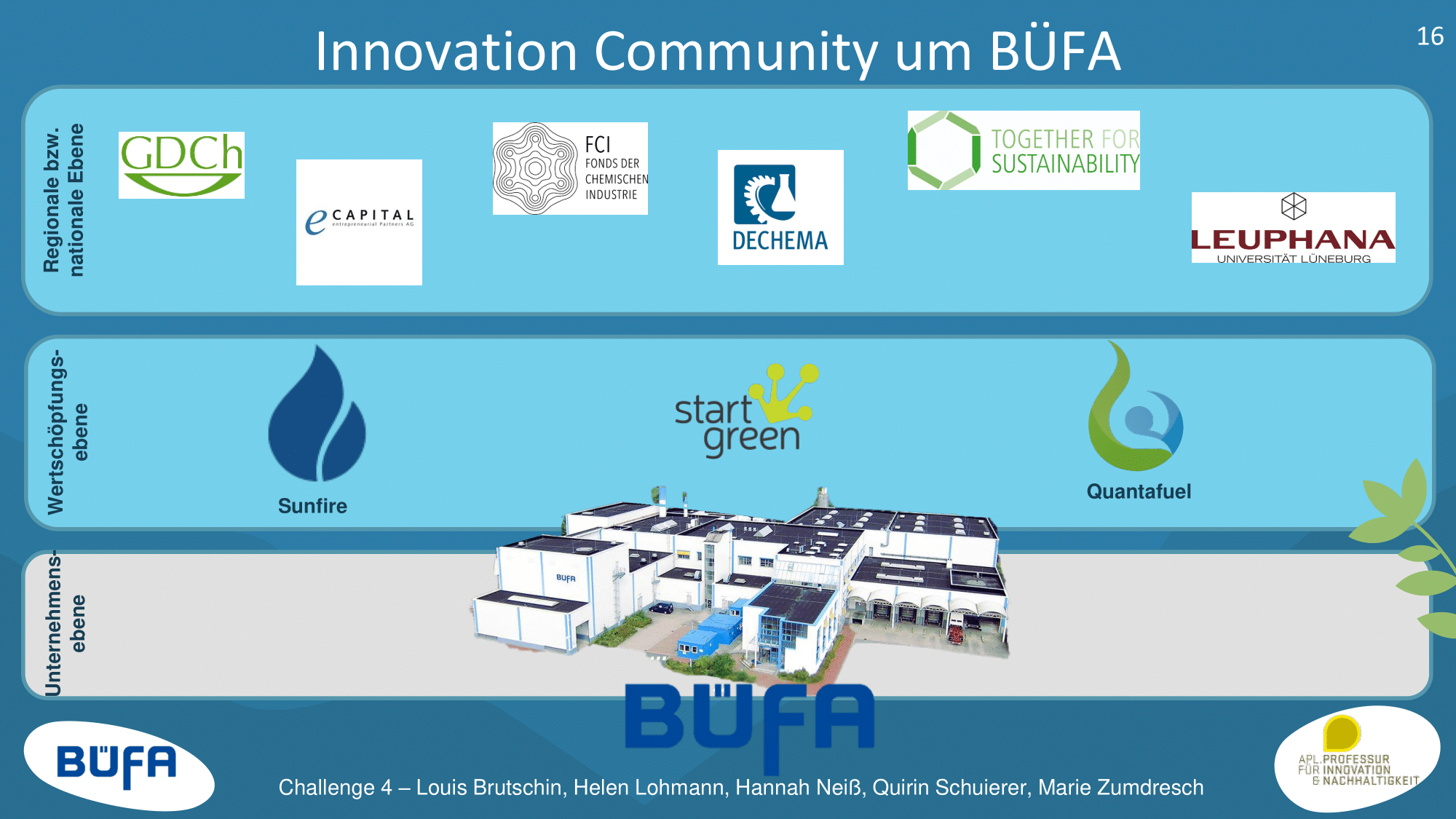"I enjoyed working on a real-life problem in an interdisciplinary team and the self-organisation this required": Quirin Schuierer, University of Oldenburg
Months
Student Teams
Company
How did you find out about the challenge and why did you decide to take part?
Quirin Schuierer: The Climate Challenge is part of the Innovation Management module, which was one of the elective modules I’d selected to study for my Master’s degree. I’d already heard about the module and the challenge from fellow students, who praised it for its strong practical orientation. I was motivated to participate in the challenge as I wanted to gain practical experience in working with an established company.
What was the task of the challenge and what did you specifically do there?
Quirin Schuierer: The task was to develop an idea to promote sustainability innovation at BÜFA, a medium-sized chemical company from Oldenburg. Here, the focus was explicitly on promoting innovations outside the company. My team developed the idea of crediting the company’s investments in start-ups, such as chemical or tech start-ups, as a way to achieve emission certificates. However, as our research showed very early on, it’s not possible to implement this under current legislation, so we had to drop this idea.
Instead, we developed the idea of building an innovation community around BÜFA. The concept of the innovation community denotes a group of experts from different organisations working together towards the common goal of innovation. The basis for the concept is the promoter model which asks about the key players in the innovation process – so those who support an innovation process with special commitment. We identified actors from other companies, associations and start-up clubs who seemed suitable for cooperation with BÜFA’s management to build a network for sustainable innovation. Here, we also took account of the political power that an innovation community potentially has to help push certain ideas and innovations, such as crediting investments in green start-ups as emission certificates.
What was your experience like? What was particularly fun and what was particularly challenging?
Quirin Schuierer: I liked that we got to work on an existing problem and that this required a high degree of independence. This really doesn’t compare to a traditional seminar at university, which usually concludes with a paper and maybe a presentation. In the Climate Challenge seminar, we had a real-life problem in front of us, which we had to solve together as a group. Although we also drew on theories that we had learned during the seminar, it was more about applying them in practice – which I thought was super interesting.
I also thought the interdisciplinary group work was a lot of fun. We were a group of students who all hailed from different programmes, so every team member brought different skills and knowledge to the process. For instance, we brought in both economic and sustainability science knowledge which fit really well in this case. In addition, some of the team members contributed useful input on project management through previous project work experience, from which we benefited greatly as a team.
“I really enjoyed working on a real-life problem in an interdisciplinary team and that this required a high degree of independence and self-organisation. Although we also drew on theories we had learned about during the challenge activity, it was more about applying them in practice – which I thought was super interesting.” – Quirin Schuierer
Of course, working with BÜFA provided many exciting insights. After an initial company introduction, we conducted several interviews with BÜFA’s innovation manager. Here, we gained important information on the company challenge and what they wanted to achieve. Because our time to speak to the manager was limited, our team had to come well prepared and well organised. At times, this proved stressful, but it really paid off: self-organisation, working in a structured way, time management and professional communication with the company are the skills I was able to improve most. These are tangible results that have proved extremely beneficial for my studies.
The input on innovation management theory and practice that was provided to us by the lecturers in the run-up to the challenge was really enriching. This not only helped me develop better ideas when developing a solution to the challenge, but has since come in handy while working on other university projects. Learning about the concept of innovation communities also made me realise the importance of cooperation and a handful of committed actors to advance innovation processes.
Was there a special highlight for you?
Quirin Schuierer: My highlight was the successful team work with other students. It was also great to eventually present our work to the company. Receiving feedback was very valuable, and of course, we were happy that the company was satisfied with our idea. Even though our idea was not implemented, it is still nice to know that our ideas and insights provided the company with new food for thought.
Whom would you recommend to take part in this kind of challenge and why?
Quirin Schuierer: I would recommend this challenge-based seminar to students willing to leave their comfort zone and those motivated to step out of the academic cosmos for a bit and get a taste of the real-world business challenges out there. Besides, collaborating with established companies potentially opens doors to new opportunities during your studies, for example when writing your final thesis or looking for a student assistant job.

powered by ScaleUp4Sustainability
Carl von Ossietzky University of Oldenburg
Department of Business Administration, Economics and Law
Adj. Prof. Innovation Management and Sustainability
Ammerländer Heerstr. 114-118, 26129 Oldenburg, Germany
Legal notice and data protection

The platform was created as part of the ScaleUp4Sustainability project. ScaleUp4Sustainability (Project Reference: 601150-EPP-1-2018-1-DE-EPPKA2-KA) is funded by the Erasmus+/Knowledge Alliance Programme of the European Union.


